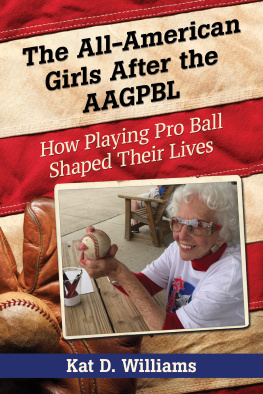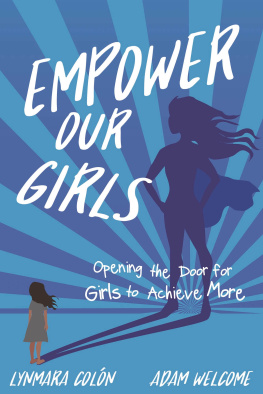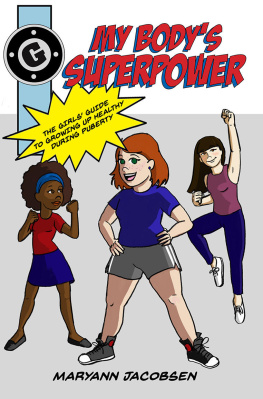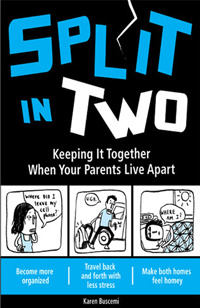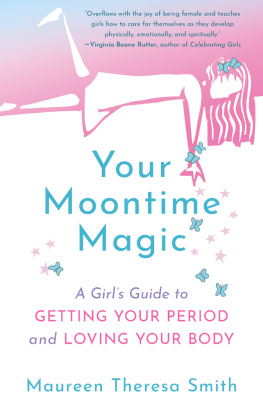
First published in Great Britain 2018 by Trigger
Trigger is a trading style of Shaw Callaghan Ltd & Shaw Callaghan 23 USA, INC.
The Foundation Centre
Navigation House, 48 Millgate, Newark
Nottinghamshire NG24 4TS UK
www.triggerpublishing.com
Copyright Richard Martin 2018
All rights reserved. No part of this publication may be reproduced,
stored in a retrieval system, or transmitted in any form or by any means,
electronic, mechanical, photocopying, recording or otherwise, without prior
permission in writing from the publisher
British Library Cataloguing in Publication Data
A CIP catalogue record for this book is available upon request
from the British Library
ISBN: 978-1-911246-41-1
This book is also available in the following e-Book and Audio formats:
MOBI: 978-1-911246-44-2
EPUB: 978-1-911246-42-8
PDF: 978-1-911246-43-5
AUDIO: 978-1-789560-48-0
Richard Martin has asserted his right under the Copyright,
Design and Patents Act 1988 to be identified as the author of this work
Cover design and typeset by Fusion Graphic Design Ltd
Printed and bound in Great Britain by Clays Ltd, Elcograf S.p.A
Paper from responsible sources

www.triggerpublishing.com
Thank you for purchasing this book.
You are making an incredible difference.
Proceeds from all Trigger books go directly to
The Shaw Mind Foundation, a global charity that focuses
entirely on mental health. To find out more about
The Shaw Mind Foundation visit,
www.shawmindfoundation.org
MISSION STATEMENT
Our goal is to make help and support available for every
single person in society, from all walks of life.
We will never stop offering hope. These are our promises.
Trigger and The Shaw Mind Foundation

A note from the series editor
The Inspirational range from Trigger brings you genuine stories about our authors experiences with mental health problems.
Some of the stories in our Inspirational range will move you to tears. Some will make you laugh. Some will make you feel angry, or surprised, or uplifted. Hopefully they will all change the way you see mental health problems.
These are stories we can all relate to and engage with. Stories of people experiencing mental health difficulties and finding their own ways to overcome them with dignity, humour, perseverance and spirit.
Richard Martins moving story is about a man who had everything, but suffered a severe depressive episode and had to rebuild his emotional wellbeing and rethink his life priorities. Richard shows us the detrimental effects of having extremely high standards, along with the dangers of over-working and ignoring signs of stress. He describes the avenues he explored in trying to understand himself and his mental health. His is an important story about challenging unhealthy approaches to mental health, and promoting self- care as a priority.
This is our Inspirational range. These are our stories. We hope you enjoy them. And most of all, we hope that they will educate and inspire you. Thats what this range is all about.
Lauren Callaghan,
Co -fo under an d Lead Consultant Psychologist at Trigger
To Steph, Gina, Jude and Lucy without each of
you this book would never have been written. To Roxy for
sharing with me all your walks. And to Dr Shrew.
Disclaimer: Some names and identifying details have been changed to protect the privacy of individuals.
Trigger encourages diversity and different viewpoints, and is dedicated to telling genuine stories of people's experiences of mental health issues. However, all views, thoughts, and opinions expressed in this book are the author's own, and are not necessarily representative of Trigger as an organisation.
Introduction
I am a father of three lovely children. I enjoy sport, good conversation, wine, food, people. I have an interest in politics and a desire to leave the world a better place than how I found it. In 2011, I was married and was enjoying a successful 20-year career as a partner in a London law firm and then, apparently without warning, I experienced a mental breakdown. This book is my story.
I hope that by telling my story I may play some small part in helping break down so much of the stigma that still surrounds mental ill health.
A primary source is a diary I kept for the first few months after my breakdown. Where I quote from that diary the text is in italics. I have sought to keep that material as close as possible to the original. The other voices in the book are additional narrative from the time before I was ill and after the diary stopped, my attempts to analyse or rationalise what happened, the learning I have gained and, at times, a perspective from the actual process of writing. Those voices, when they appear, should be largely clear.
Some of the material, particularly from my early childhood, is personal and raw. I have not sought to sweeten it. It is my perspective of what happened, included here because it informs what followed. It doesnt change the way I feel about the people involved now. I am not the person I was then, and neither are they.
A breakdown isnt the beginning of mental illness, its the
publication of it. Its the volcano that has been rumbling away
for years, exploding with boiling lava and destroying everything
in its path. It has no choice; it was made like that, and people
built houses on its slopes knowing what it was but hoping that
it might not actually erupt.
Lucy Martin 2016
Chapter 1

It is said that as much as 75% of adult mental illness (excluding dementia) would be diagnosable by the age of 18, if only we looked and knew what to look for. I wonder what someone looking at me all those years ago would have seen. I did not know I was a volcano, and the eruption, when it came, was a big surprise. Looking back now, though, at all the steps and choices I have taken, there seems an inevitability to it, that I was heading inexorably to that moment in May 2011 when everything started to fall apart.
Here is a quick overview of the first 23 years of my adult life. I studied law at university. I had intended on being a barrister, the sort of lawyer that stands up in court, but I was persuaded to spend a couple of weeks on a summer placement in a solicitors firm in the City of London. There I found interesting work and, in sharp contrast to the loneliness of my experience shadowing barristers, a sense of community and support.
And so, after law school, I joined that firm. It was, in London terms, medium-sized probably around 200 people all told at that time. But it proudly proclaimed its difference from other firms. It punched above its weight in terms of the work it did and the clients it acted for. It had a unique training system that gave trainee solicitors (articled clerks as we were known then) far more responsibility than at other firms. Also, to attract potential recruits who might otherwise be drawn to larger firms, it had a policy of paying more than anyone else in the market. The extra money was nice, the responsibility was something I thrived on, but I think it was the sense of being different, special in some way, that really drew me in.


